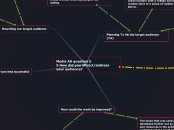jonka Lijuan Huang 6 vuotta sitten
222
approches to argument
Different approaches to argumentation are explored, each highlighting unique methods and strategies. Aristotelian rhetoric relies on the balance of logic, emotional appeal, and the credibility of the writer, employing both inductive and deductive reasoning.









